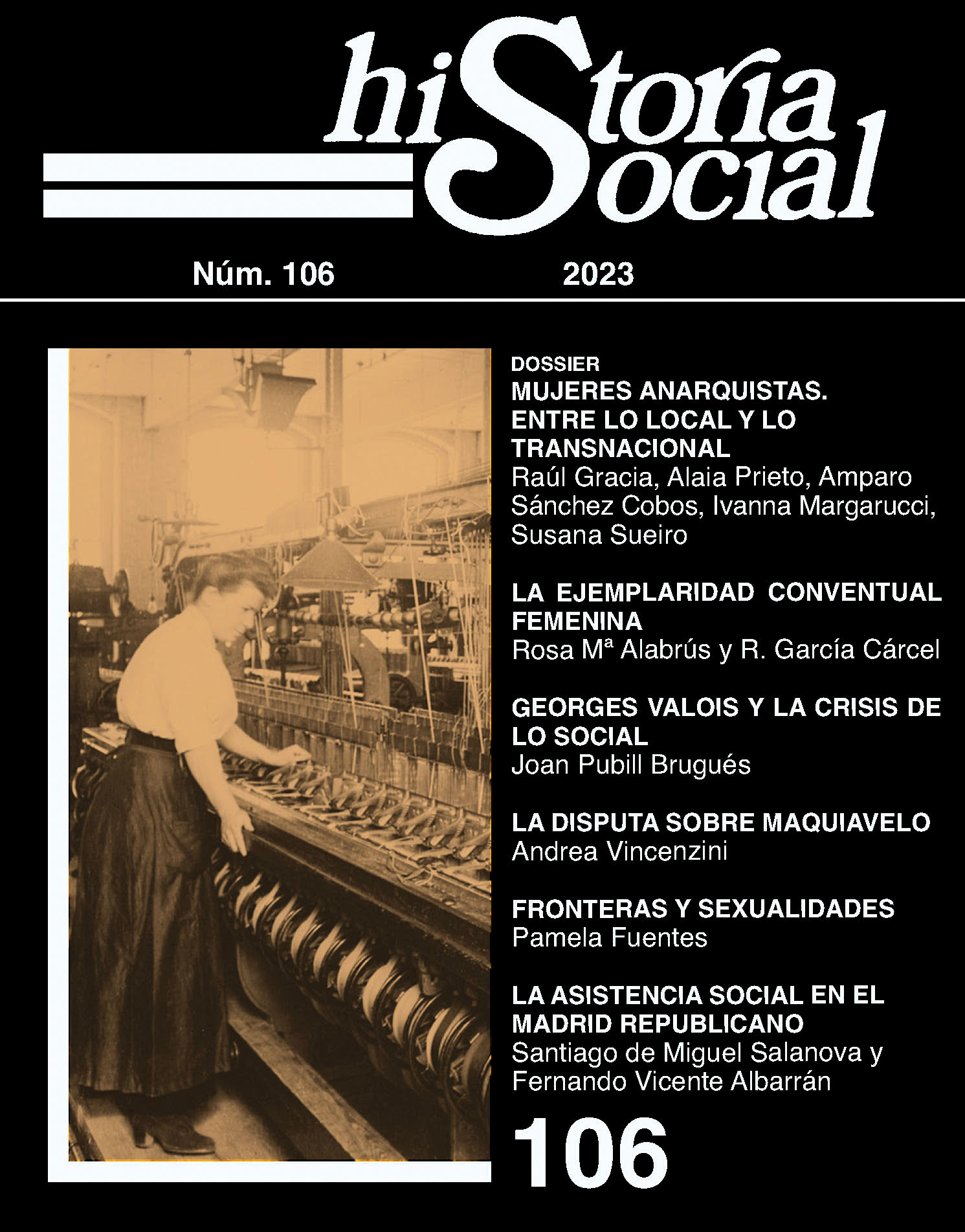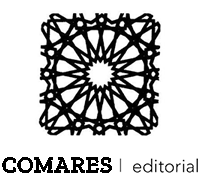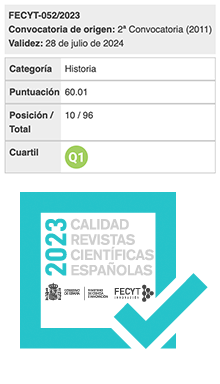An Italian weaver from Paterson (New Jersey). The anarchofeminism of Maria Roda
DOI:
https://doi.org/10.70794/hs.103201Keywords:
Maria Roda, Anarchism, Women's emancipation, Italy, United StatesAbstract
This article rescues the trajectory and evolution of Maria Roda, an anarchist woman who played a relevant role in the dissemination of the ideas of female emancipation. The history of Roda’s struggle against the constituted power began as a child in Italy, her country of origin, strongly influenced by her father, who educated her in an intensely anarchist environment. Arriving, still very young, in the United States with an active anarchist militancy already behind her, she immediately stood out for her charisma and her great power of attraction as a speaker. Shortly thereafter, she met the Catalan anarchist Pedro Esteve, who became her life partner. Esteve served as a spur to give Roda a voice in anarchist circles and to vindicate her anarcho-feminist creed. However, her dedication to motherhood (ten childbirths) and to the home kept her away from the public sphere, although she kept her anarchist ideology until the end of her life.







